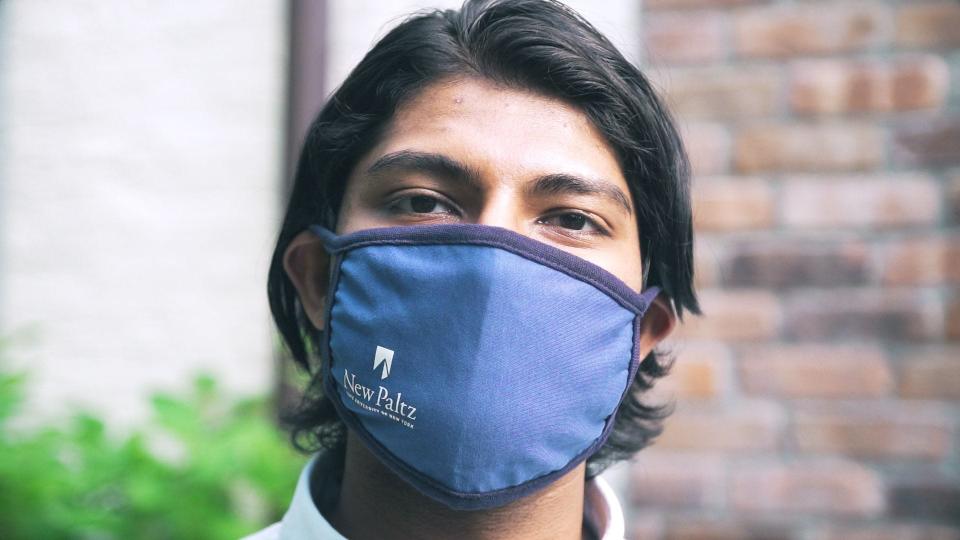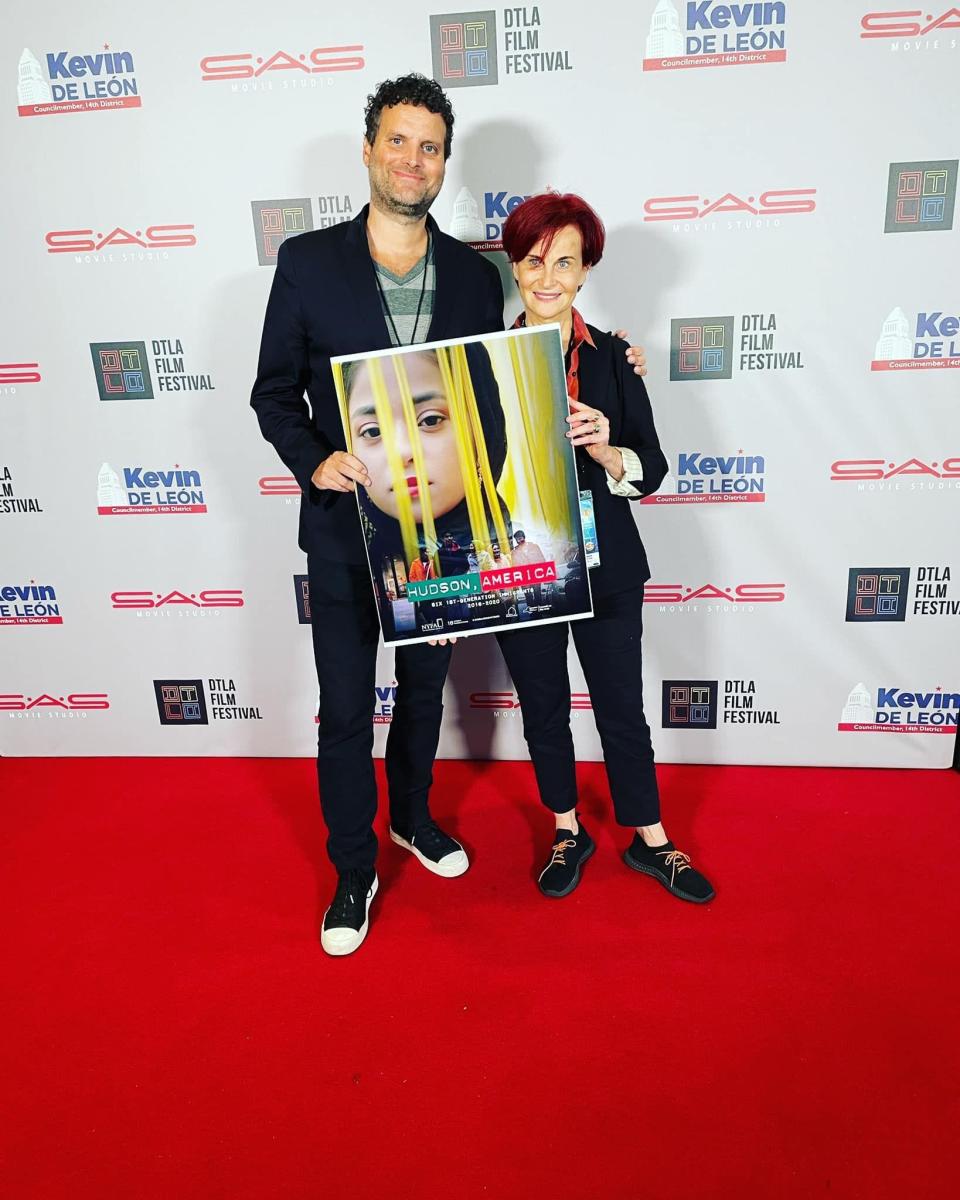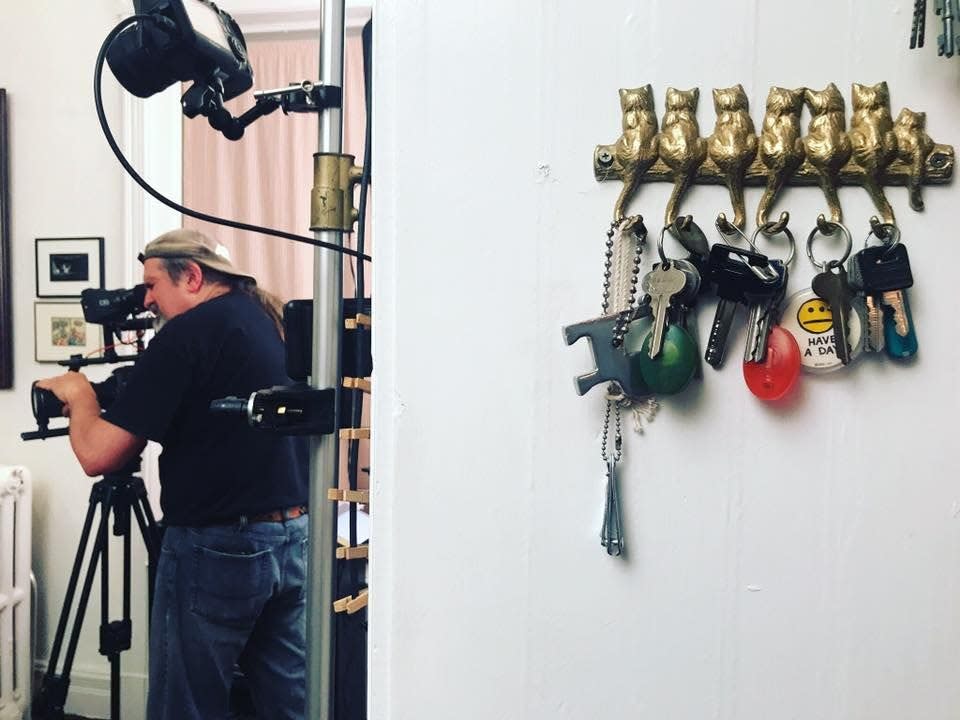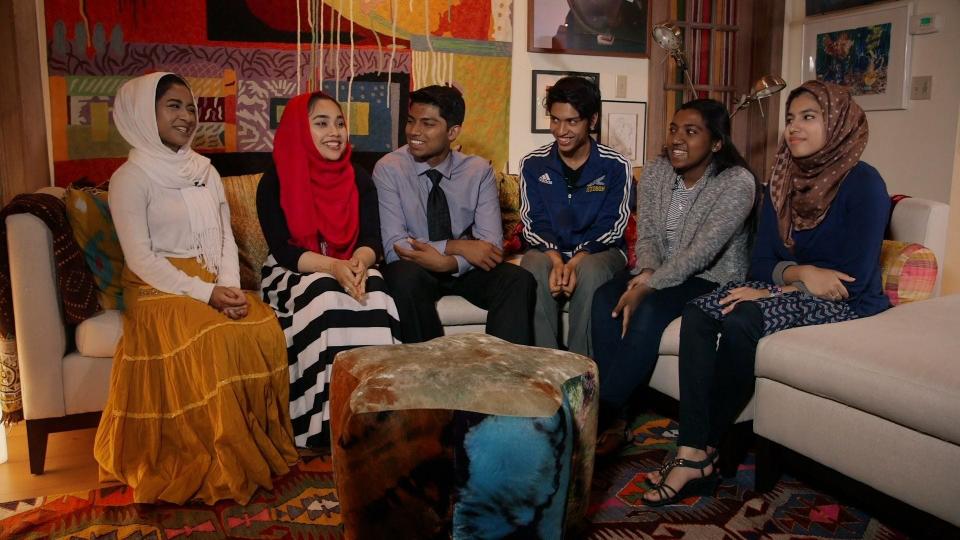Hudson Valley students' experiences shared in Amazon Prime documentary: What to know
Jahed Miah was a 17-year-old Hudson High School senior preparing to go to SUNY New Paltz when he was approached to participate in a documentary.
It seemed like a once-in-a-lifetime opportunity, he thought at the time. He had to go for it.
"As an exercise in being brave and vulnerable, it's something that I'm really able to carry with me today," said Miah, now 25 and living in Huntington. "That was a big part of shaping me into who I am."

Miah is one of six people featured in "Hudson, America," a documentary focused on the lives of Gen-Z Bangladeshi immigrant students in their hometown of Hudson, a small city of just under 6,000 people.
Over seven years of filming across the Hudson Valley, the Northeast and internationally from 2016 to 2022, filmmakers Zuzka Kurtz and Geoffrey Hug captured their struggles with the pressure of leaving an insular Muslim community, the imposing thought of arranged marriages and forbidden love, all amidst a time of divisive politics and a global pandemic.
These experiences, while anchored in cultural tradition, revealed universal themes of intergenerational struggles, balancing the desire to make your parents happy while still being true to yourself and honoring your heritage.
The film, Hug says, is "a portrait of America through these six young people's eyes."
More: This program is preparing the workforce for New York's growing cannabis industry
How to watch 'Hudson, America'
"Hudson, America" is available for streaming on Amazon Prime Video, along with Kanopy, an on-demand streaming video platform for public and academic libraries.
Amazon Prime recommends the documentary for audiences age 16 and up.
“Amazon Prime Video provides the perfect platform to get these exceptional young people’s stories to as many people as possible,” said Kurtz in a statement.

How 'Hudson, America' documentary was made
Hug and Kurtz, who worked as co-directors on the project, have produced three documentaries together. "Hudson, America" began when Kurtz met Ramisa Tasnim, one of the participants, and became interested in students like Tasnim, who have a foot in both worlds — either born in the U.S. to Bangladeshi immigrant parents or born in Bangladesh and immigrated here.
"She always has a really good nose for sniffing out interesting projects," Hug said of Kurtz, "...a real kind of poetic sensibility about where she can find great ideas, great stories that haven't been told."
From there, Tasnim helped them find other participants, and the idea was born. The filmmakers set out to follow the assembled group of six students — including Miah, one of two who were SUNY New Paltz students at the time — for four years, a timeframe meant to capture a presidential cycle and the students' college careers.
More: Yoga, climbing, MMA: Check out these 5 Poughkeepsie gym alternatives
Instead, filming would continue several years more, stretching through the COVID-19 pandemic and into 2022.
“These kids and the community at large are truly a microcosm of the larger world and the issues we have collectively faced over the last seven years,” Hug said in a statement.
The themes of 'Hudson, America'
The backdrop of the film focuses on the Muslim community within Hudson, which emerged in the mid-1990s as Bangladeshi people immigrated to New York, many working as low-wage laborers in a button factory. The factory closed after 9/11, leaving many in the community grappling with lost jobs and hostility toward Muslims in America.
Growing up in this environment are six seniors at Hudson High School. The audience watches as they graduate from high school and move on to progressive colleges in the Northeast, while contending with cultural shifts including xenophobia, the blurring of gender roles, the #MeToo movement and the pandemic.
"They all came from the same environment initially, and then as time goes on, their different experiences inform the changes in their lives, their beliefs and their lifestyles," Hug said.

Why the documentary was filmed in the Hudson Valley
Lars Elling Lunde, a 59-year-old Hudson Valley native and one of the primary camera operators for "Hudson, America" lived in Wappingers Falls throughout the filming process and now lives in Orange County.
Filming for "Hudson, America," which Lunde said was the longest documentary he's ever been involved with, was sporadic. At times the filmmakers would give the participants cameras to capture footage on their own. But when it came time to gather for a shoot, it was easy for Lunde to come up with suggestions.
"We have such an amazing support structure in the Hudson Valley for filmmaking that you get so many options," he said.

Building relationships and showing vulnerability
When they were together, Lunde said the directors and crew weren't just listening to the students tell their stories as documentarians, but as people who care about them and their lives. "It becomes sort of like this strange little film family," he said.
Normally a fairly reserved person, Miah said putting intimate details about his life, including past trauma, out into the world sometimes "felt very scary." But he trusted the filmmakers, and found the project gave him the opportunity "to reflect and to process."
"I wanted to showcase in the documentary for those who are going through similar struggles that you can overcome them and move forward," he said.
The outcomes and takeaways
"I think it is a special thing to give a young person a platform, especially one who might not feel seen from the outside world, coming from an insular community," Hug said.
What you see in the documentary is not sensationalized, Hug said, it is an honest reflection of what these young adults experienced from 2016-2022.
Miah said he'll be eternally grateful for the experience; to be able to see how he has changed throughout the years, how some moments shaped him, how he overcame struggles and shared that with others.
"For myself, my story and my voice, I think Zuzka and Geoff did a phenomenal job, and it was beautiful for me."
Miah, who graduated from SUNY New Paltz in 2022, said his intention in participating in the documentary developed into sharing what he has gone through so those who have endured something similar can relate to his story.
"Then maybe they won't be alone," he said. "Maybe I'm not alone either."
This article originally appeared on Poughkeepsie Journal: Amazon documentary tells story of Muslims in the Hudson Valley

